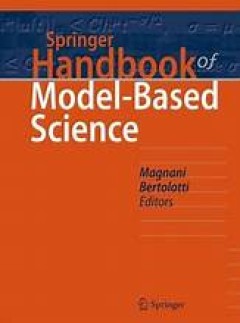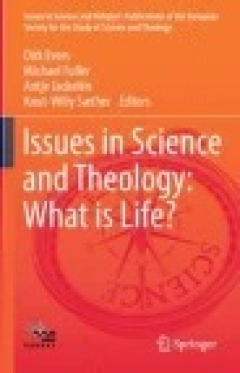Filter by

Expert Consensus in Science
This Open Access book shows how expert consensus pervades all areas of science. It explores, in particular, the role of consensus in establishing scientific truth, in guiding professional practice and policy and agreeing on what are acceptable scientific methodologies. For some scientific issues, a consensus forms spontaneously among scientists working on a topic, while for others, where the is…
- Edition
- 1
- ISBN/ISSN
- 9789819792221
- Collation
- XVII, 231 hlm; ill., lamp.,
- Series Title
- -
- Call Number
- -

Technological Utopianism and the Idea of Justice
This open access book advances a modest defence of technological utopias. While technological utopianism is not devoid of risks and elitism, their benefits should not be discounted in an overall assessment. Rather than rejecting them based on a too narrow definition of utopianism, we must acknowledge their potential to exceed the individualist vs. collectivist dichotomy ascribed to traditional …
- Edition
- 1
- ISBN/ISSN
- 9783031759451
- Collation
- IX, 156 hlm; ill., lamp.,
- Series Title
- -
- Call Number
- -

Springer Handbook of Model-Based Science
This handbook offers the first comprehensive reference guide to the interdisciplinary field of model-based reasoning. It highlights the role of models as mediators between theory and experimentation, and as educational devices, as well as their relevance in testing hypotheses and explanatory functions. The Springer Handbook merges philosophical, cognitive and epistemological perspectives on mod…
- Edition
- 1
- ISBN/ISSN
- 978-3-319-30526-4
- Collation
- Mathematics
- Series Title
- -
- Call Number
- 510

Issues in Science and Theology: What is Life?
This book explores the concept of Life from a range of perspectives. Divided into three parts, it first examines the concept of Life from physics to biology. It then presents insights on the concept from the perspectives of philosophy, theology, and ethics. The book concludes with chapters on the hermeneutics of Life, and pays special attention to the Biosemiotics approach to the concept. The q…
- Edition
- -
- ISBN/ISSN
- 978-3-319-17407-5
- Collation
- -
- Series Title
- -
- Call Number
- -

A Student's Guide Through the Great Physics Texts: Volume II: Space, Time and…
This book provides a chronological introduction to the science of motion and rest based on the reading and analysis of significant portions of Galileo’s Dialogues Concerning Two New Sciences, Pascal’s Treatise on the Equilibrium of Fluids and the Weight of the Mass of Air, Newton’s Mathematical Principles of Natural Philosophy, and Einstein’s Relativity. Each chapter begins with a sh…
- Edition
- Ed. 1
- ISBN/ISSN
- 978-1-4939-1366-4
- Collation
- XXVI, 380
- Series Title
- Undergraduate Lecture Notes in Physics
- Call Number
- 501 KUE s
 Computer Science, Information & General Works
Computer Science, Information & General Works  Philosophy & Psychology
Philosophy & Psychology  Religion
Religion  Social Sciences
Social Sciences  Language
Language  Pure Science
Pure Science  Applied Sciences
Applied Sciences  Art & Recreation
Art & Recreation  Literature
Literature  History & Geography
History & Geography